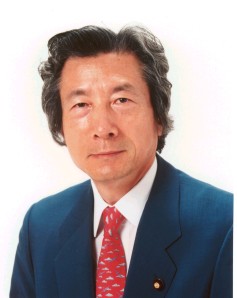
Junichiro Koizumi
On April 26th 2001 Junichiro Koizumi became the Prime Minister of Japan. Koizumi ran an insurgent campaign becoming the surprise leader of the Liberal Democratic Party. The LDP has been the long time leader of the country, and its leader . Koizumi campaigned to become head of the party on a platform of clear reform .
Junichiro Koizumi, a charismatic and reform-oriented leader, served as Japan's Prime Minister from 2001 to 2006. He was a member of the Liberal Democratic Party (LDP), a center-right party that has been dominant in Japan's political landscape for much of the post-World War II era.
Koizumi's tenure is particularly remembered for his attempts to restructure and revitalize the Japanese economy, which had been mired in a period of stagnation known as the "Lost Decade" following the burst of an asset price bubble in the early 1990s. He pushed for structural reforms, including deregulation and liberalization of various sectors, and sought to resolve the problem of non-performing loans that burdened the Japanese banking system.
One of his most significant initiatives was his plan to privatize Japan Post, a massive entity that handled not only postal services but also banking and insurance services. Koizumi argued that privatizing Japan Post would stimulate competition, improve efficiency, and help revitalize the economy. This plan faced substantial opposition, including from within his own party, but Koizumi staked his premiership on it and eventually managed to get the privatization law passed.
Koizumi was also known for his distinctive style and media-savvy approach, which helped him maintain high approval ratings. He was an unusual figure in Japanese politics, often bucking tradition, and his popularity allowed him to push through some reforms despite opposition.
However, his time in office also had its share of controversies, including his repeated visits to Yasukuni Shrine, a Shinto shrine that honors Japan's war dead, including war criminals from World War II. These visits were seen by many, particularly in China and South Korea, as symbolic of a lack of remorse for Japan's wartime actions.
 >
>